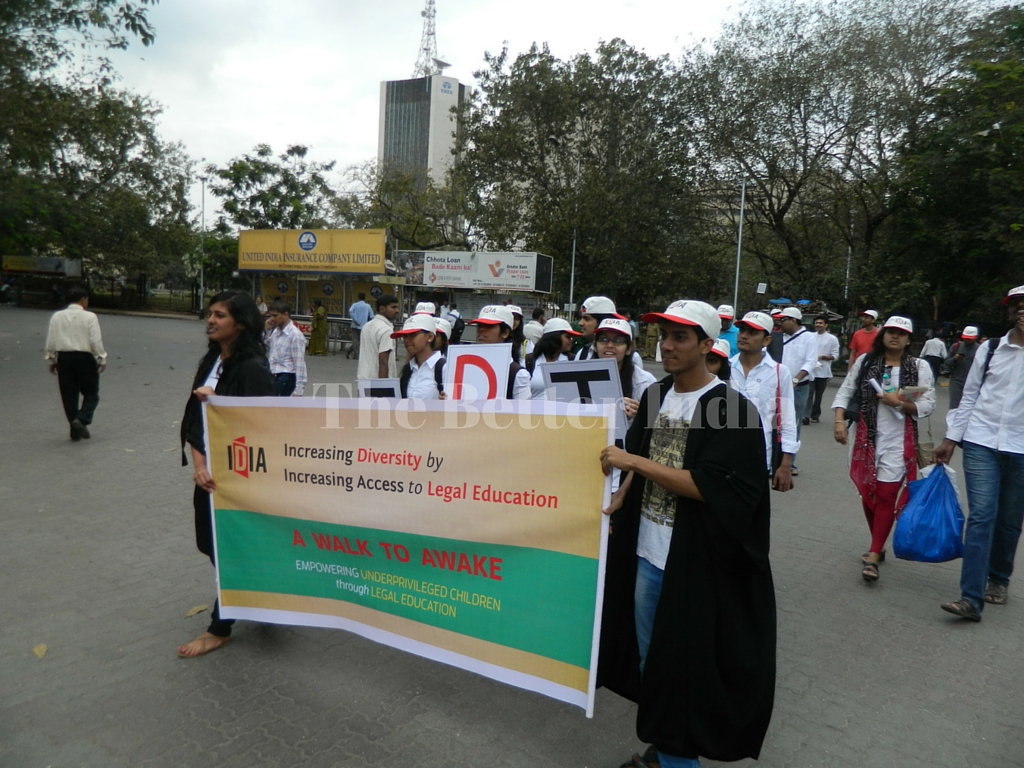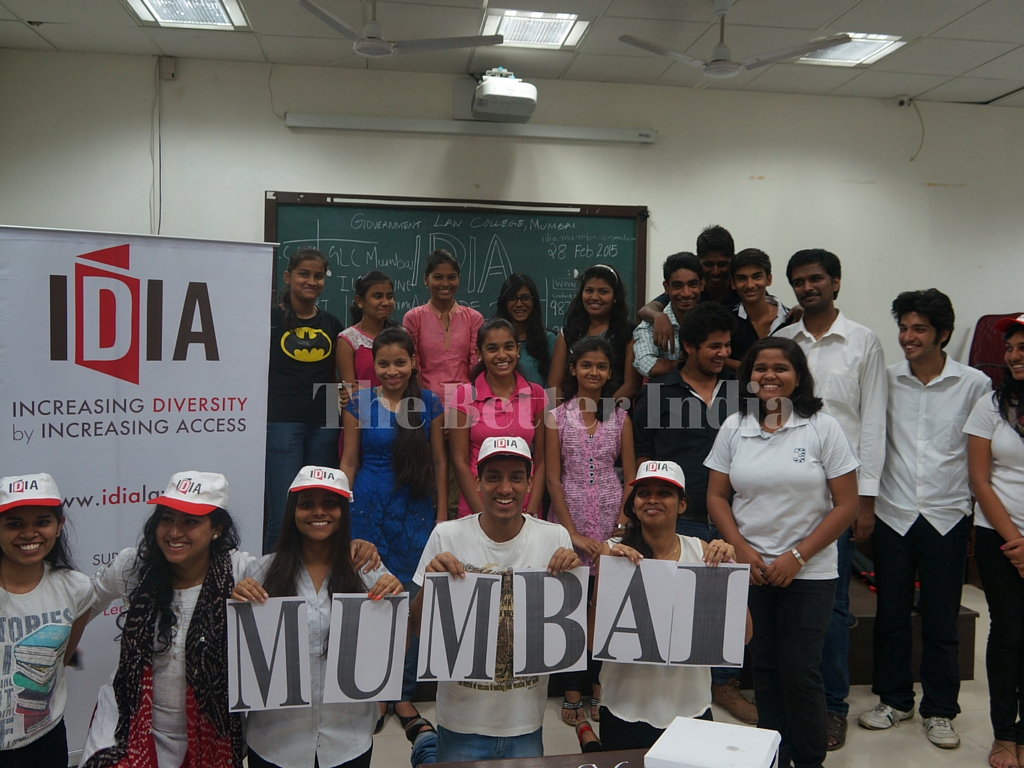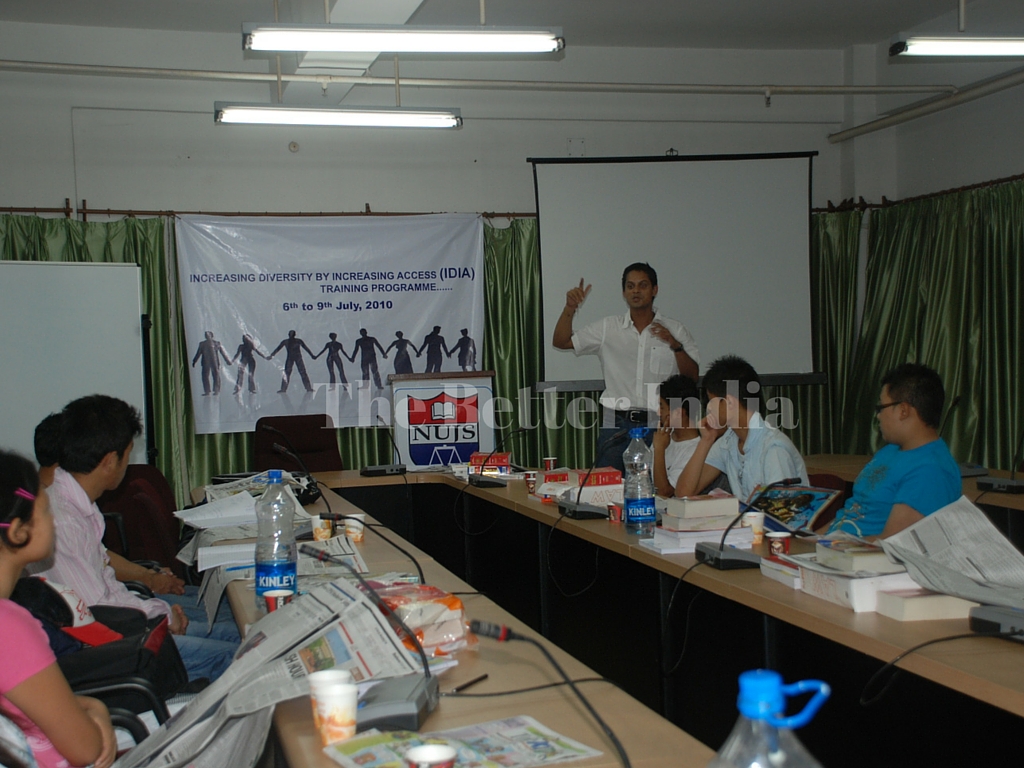This Law Professor Has Created an Amazing Route for the Economically Poor to Also Become Lawyers
Shamnad Basheer is a lawyer and founder of IDIA, an initiative that enables students from disadvantaged backgrounds gain admission to premier law schools and an entry into this powerful profession.

Shamnad Basheer is a legal scholar and founder of IDIA, an initiative that enables students from disadvantaged backgrounds gain admission to premier law schools and an entry into this powerful profession.
Doctors often dream of their children becoming doctors, a lawyer family may see generations of its family become lawyers, and the film industry is full of star sons and daughters. But what about those children who do not have role models or godparents and benefactors? Should a beggar’s child be a beggar too? Or should a deprived family not dream of seeing an IAS or a professional in the family?
When we speak of providing equal opportunity for all, our thoughts and efforts are often restricted to providing primary education, regular employment opportunities and basic living requirements.
But one man is taking his dream of providing equal opportunity to the needy to a whole new level. Meet Shamnad Basheer, a 39-year-old lawyer and professor with a difference.
Shamnad is using his college degree and knowledge to provide the best possible legal education to the underprivileged and enable them to become lawyers and communal leaders.

He started an organization called IDIA (Increasing Diversity by Increasing Access to Legal Education) in 2010 to reach out to marginalized and under-represented groups, sensitize them to law as a viable career option, and help interested students gain admission to law schools.
“In 2009, while teaching at the West Bengal National University of Juridical Sciences (NUJS), a leading law school, I noticed that most of the students spoke fluent English and lived privileged urban lives. I thought, does this class really represent the real India? What about the millions of kids who don’t get access to this profession because of their less privileged backgrounds and lack of exposure to the legal profession? Fortunately for me, our then Vice Chancellor Prof. M.P. Singh shared the same sentiment and encouraged me to do something about this. After a round of discussions, including with scholars from leading Universities abroad, I kickstarted IDIA,” recalls Shamnad.
IDIA has various programmes to empower disadvantaged students and help them access premium law schools in the country.

The team’s work starts with sensitizing these students (and their parents) about the prospects of a legal career. This is followed by an aptitude test to select students for the study of law.
“Sensitizing is the first step since a number of students, particularly those in underprivileged areas, simply are not aware about the opportunities in law. Worse still, there is a huge negative perception around the law. We therefore work hard at correcting this perception and showcasing the transformative potential of the law. We also stress on the wide diversity of enticing career options in law, ranging from litigation to lucrative corporate law firm work to human rights advocacy to even practising international law at the UN. This generates immense interest amongst students and we often find that from a mere 1 or 2 students who were interested in law, suddenly more than 80 percent of the class wants to do law,” says Shamnad.
IDIA’s pilot project began in a government school in Pelling, a small Himalayan town in West Sikkim. Out of the eight students that the IDIA team trained, one made it to a national law school. Using this pilot as a model, they expanded to other states. Today IDIA is active in 17 different states of India.
The selected students are provided free Internet by collaborating with local cyber cafes. They undergo online CLAT (Common Law Admission Test) training and, once they have a grasp of the process, they are advised to help other students.

After the initial online training, students are trained on a regular basis for CLAT and AILET (All India Law Entrance Test) by IDIA student volunteers and two leading CLAT training centres.
“Since law requires good command over the English language, we also provide intensive English learning sessions to the students,” says Shamnad.
After rigorous training for two years, students are asked to take the competitive exams and choose their colleges.
However, many of them cannot afford the fees at the premier law colleges where they get admission. Since the cost of education at these schools is high, a major part of IDIA’s work revolves around finding financial support for the shortlisted candidates.
“Often, law schools charge above Rs. 3 lakhs. We spend a large amount of time raising funds with the help of donors. We also ask people to sponsor individual students. In addition, we attempt to secure fee waivers and scholarships for these students from the respective National Law Universities (NLUs) and the government,” says Shamnad.
Since internships play a crucial role in shaping legal careers, IDIA has also entered into informal arrangements with a number of law firms, corporates, policy think tanks, and NGOs that have promised to accommodate IDIA scholars in their internship programs.
Thanks to IDIA’s interventions, several disadvantaged students are now entering or have entered the legal profession, a career they never thought they could pursue.

Yogendra Yadav, a newspaper seller from a naxalite area is a student at the National University of Study and Research in Law, Ranchi. Karthika Annamalai, who hails from an impoverished stone quarry site close to Bangalore, is now in her fourth year at NUJS, one of India’s top law schools. She recently represented India at a global policy debate competition at Budapest. And these are only a handful of success stories from IDIA.
IDIA volunteers have visited more than 200 schools and sensitised more than 20,000 children to law (as a career option) and legal education. The team has trained more than 200 students who demonstrated aptitude for the study of law. Of the 250+ underprivileged students trained by IDIA, more than 70 procured admission to various law schools in India. And of the 70 who secured admission, 42 were admitted to leading NLUs.
IDIA recently launched a new project called CHAMPS, to transform each of their underprivileged scholars into leading lawyers who are Creative, Holistic, Altruistic and Maverick Problem Solvers. “This way, we hope to change the game and unleash a new breed of leaders for society,” says Shamnad.
The biggest challenge for the organization is financial since a lot of its work revolves around securing admission for the students and paying their high fees.
“Finance is a continuous need. We need it for their training, to pay their fees and also to look after their other requirements,” says Shamnad.
If you would like to contribute to IDIA’s work or know more about the organisation, check out the website.
Like this story? Or have something to share? Write to us: [email protected], or connect with us on Facebook and Twitter (@thebetterindia).
If you found our stories insightful, informative, or even just enjoyable, we invite you to consider making a voluntary payment to support the work we do at The Better India. Your contribution helps us continue producing quality content that educates, inspires, and drives positive change.
Choose one of the payment options below for your contribution-
By paying for the stories you value, you directly contribute to sustaining our efforts focused on making a difference in the world. Together, let’s ensure that impactful stories continue to be told and shared, enriching lives and communities alike.
Thank you for your support. Here are some frequently asked questions you might find helpful to know why you are contributing?


This story made me
-
97
-
121
-
89
-
167











